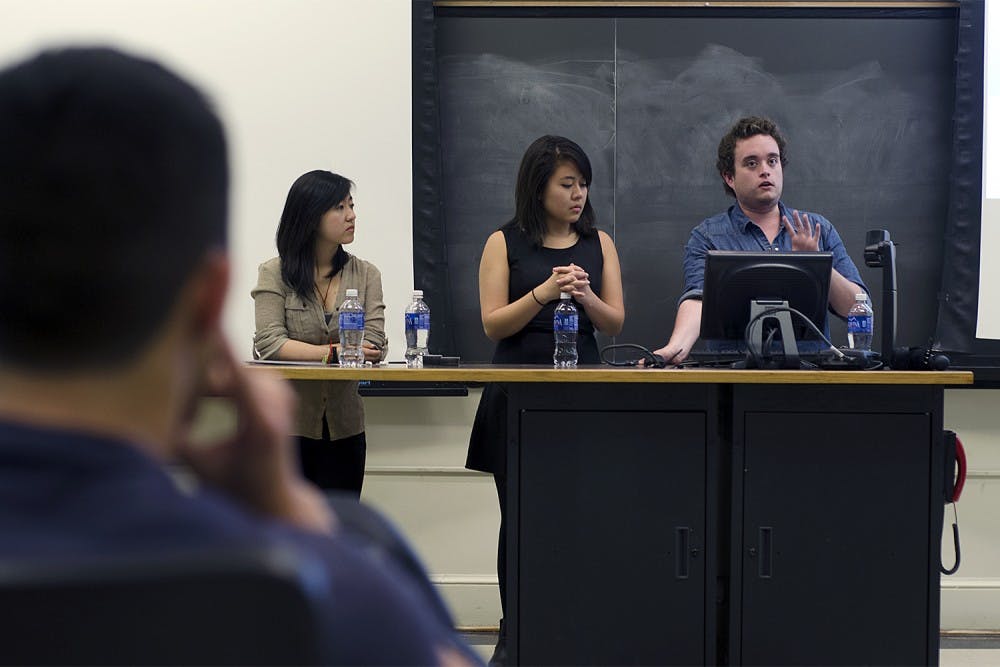Jardell, a 2014 finalist on “America’s Next Top Model” and keynote speaker at “Sharing Our Experiences,” described the differences between UNC and his small hometown in Texas.
“Texas is so far behind from all of these things you’re talking about,” Jardell said. “It’s still nowhere near where the rest of the United States is. They’re still talking about coming out and being yourself, and there’s no issues, there’s no activist groups. It’s nothing that’s associated with the government at all because it’s still people who are scared to share themselves.”
Students discussed the challenges of being activists in UNC’s LGBT community at the Wednesday evening event hosted by the Multicultural Affairs and Diversity Outreach Committee.
Student panelist Kaori Sueyoshi, co-chairwoman of Students United for Reproductive Justice, said being an activist on UNC’s campus is different from the real world.
“I think what makes it unique on colleges campuses, especially at a top university like UNC, is the desperate drives to pick up rank or title,” Sueyoshi said.
“That drives a lot of segmentation. People are often starting new groups that are kind of overlapping with something that already exists, and there’s no really good way around it other than coming to an understanding that is a holistic approach that takes a lot of time.”
Wilson Hood, student panelist and The Siren magazine managing editor, said the LGBT community at UNC faces specific road blocks because it is a public university.
“As one of the flagship campuses of the UNC system, a lot of the struggles that we face here on campus become sort of symbolic of struggles happening across the state,” he said.



